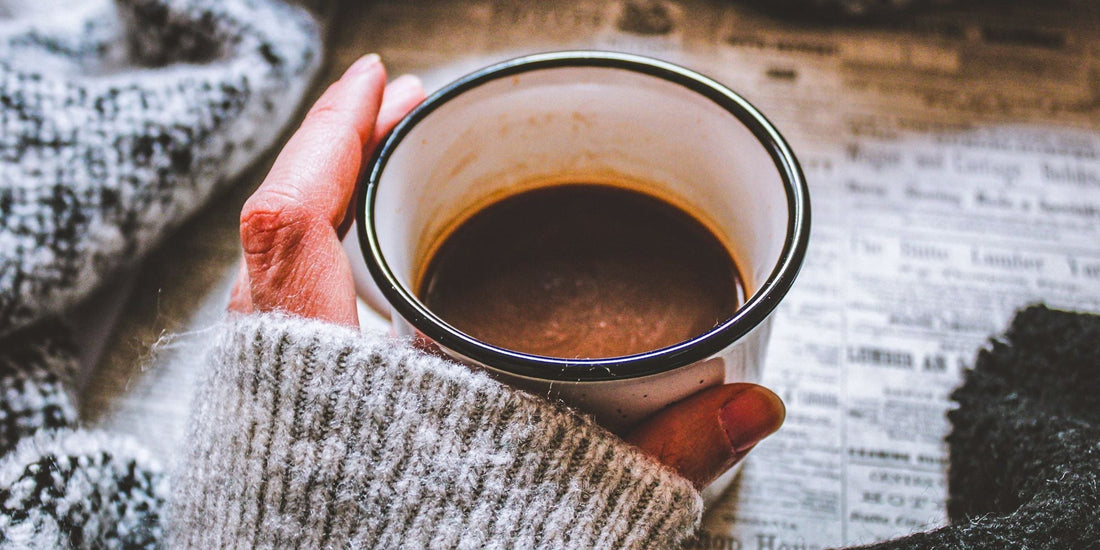If you've ever wondered whether decaf coffee is truly caffeine-free, you're not alone. Many people enjoy it for its smoother taste and lighter impact, but confusion still lingers about what's in the cup. At Terra Coffee & Tea, we believe understanding your coffee makes every sip more meaningful. Let's look at how decaf is made, what's really in it, and why it might be the right choice for you.
What Is Decaf Coffee?
At its core, decaffeinated coffee is regular coffee that has undergone a decaffeination process to remove the caffeine from coffee beans. But here's the truth: no process removes all caffeine. Instead, it reduces the caffeine molecules by about 95–97%.
Before roasting, the beans are soaked in water or treated with methods like the Swiss Water Process or using carbon dioxide. These methods gently draw out the caffeine from coffee beans while keeping their unique flavours intact. The result is a cup with less stimulation, but still plenty of character.
Does Decaf Coffee Have Any Caffeine?
Yes — but only a small amount. While a standard cup of coffee has about 95 mg of caffeine, decaf usually has between 2–7 mg. In other words, you'd need to drink several cups of decaf espresso to equal just one serving of caffeinated coffee.
For most people, these trace amounts of caffeine aren't enough to cause restlessness or sleep problems, making decaf a wise evening choice.
How Much Caffeine is in Decaf Coffee?
The exact caffeine content depends on the types of coffee used and the method of decaffeination. Arabica beans tend to have less caffeine than Robusta beans. And processes like the Ethyl Acetate Process — used in our Sugar Cane Decaf coffee — are particularly effective at reducing caffeine without losing flavour.
Think of it this way: if a bar of milk chocolate contains around 9 mg of caffeine, then a cup of decaf coffee often has less than that.
How is Decaf Made?
Swiss Water Process
- Uses water, time, and filtration to gently remove caffeine while protecting flavour compounds.
- Often chosen due to no added solvents.
- Flavour retention: 4/5 - slightly muted compared to the E.A. Method
Mexican Mountain Water Process
- A chemical-free method that uses pure mountain spring water from Mexico to remove caffeine gently.
- Similar to the Swiss Water Process and is suitable for organic decaf coffees.
- Flavour retention: 4/5 - slightly muted compared to the E.A. Method

E.A. (Ethyl Acetate) Method (also known as Sugarcane Decaf)
- Considered natural in Europe due to the fact that it is sourced from fruits, E.A. is used to remove caffeine effectively.
- Well-suited for creating rich profiles, such as those of our Sugarcane Decaf E.A coffees.
- Flavour retention: 5/5 - known for preserving sweetness, body, and clarity.

CO₂ Method
- Applies pressurized carbon dioxide to target caffeine molecules specifically.
- Efficient for preserving aromatics; CO₂ is removed and recycled after extraction.
- Flavour retention: 5/5 - known for preserving aromatics, but less common due to cost.

MC (Methylene Chloride) Process
- Uses methylene chloride as a solvent to selectively bond with caffeine molecules and extract them from green beans.
- Extremely low levels of MC remain after roasting—well below safety limits—and the process is approved by health authorities.
- Flavour retention: 4/5 - decent flavour retention, but less preferred in the specialty world due to perception, despite being food-safe.
What Does Decaf Taste Like?
Great decaf is hard to find. While most decafs still taste like coffee, they usually lose quite a bit of flavour during the decaffeination process. Of all the decafs with tasted, the Sugarcane Decaf method preserves the most flavour of all processes. Choosing the right roast option will also allow your decaf to shine whether in filter brews or as decaf espresso.
- For Decaf Filter Brews : You have the flexibility of choosing the roast profile which best suits your needs whether Light Medium, Medium Dark or a blend of both.
- For Decaf Espresso: We suggest choosing a Medium Dark roast for best results.
Is Decaf Coffee Bad for You?
This is one of the most common questions we hear. The good news? Modern methods are designed for purity and quality. With clean processes and careful roasting, decaf coffee is a safe and enjoyable choice.
For anyone sensitive to caffeine, decaf is a better choice, offering the comfort of a warm cup of coffee without the jitters.
Is Decaf Coffee Healthy?
Yes — it has many of the same antioxidants and compounds as regular coffee. These contribute to reduced inflammation, potential heart health benefits, and even protective effects on the liver. Because decaf typically has lower a acidity body, it may also be easier on the stomach for some people.
While you won't get quite the same boost as with green coffee extract, you'll still benefit from its nutrients.
Is Decaf Coffee Fattening?
On its own, no. Black decaf is very low in calories. What changes the picture are additions like sugar, syrups, and cream. Choose milk or alternatives and balance add-ins to keep your decaf aligned with your goals.
Advantages of Decaf Coffee
- Enjoy coffee in the evening without disrupting sleep.
- Lower risk of caffeine-related side effects (like anxiety or heart palpitations).
- Retains flavour through careful roasting and the proper decaf method.
- Pairs beautifully with dessert or a late-night chat.
At Terra, we believe that decaf coffee beans deserve the same care as any other. That's why we craft roasts like our Espresso Decaf E.A. and Espresso Mountain Water Decaf, balancing flavour and consistency for the best coffee-tasting experience possible.
Quick FAQ
- What is decaf coffee? Coffee that has had most of the caffeine removed via a decaffeination process before roasting.
- Does decaf coffee have any caffeine? Yes — small, trace amounts.
- How much caffeine is in decaf coffee? Typically 2–7 mg per cup, depending on method and bean.
- Is decaf coffee better for you? If you're caffeine-sensitive or want an evening cup, it can be a better fit.
Conclusion
So, is decaf coffee better for you? The answer depends on your needs — but it's certainly a safe, enjoyable, and often healthier way to savour your favourite drink without the buzz. With its rich flavours, gentle caffeine content, and many benefits of drinking decaf coffee, it's worth adding to your daily ritual.
Explore our best decaf coffee options and discover how smooth, balanced, and rewarding decaf can be. Whether you choose a creamy decaf espresso or a classic brewed cup, you'll find that decaffeinated coffee offers all the warmth and comfort — without the sleepless nights.



